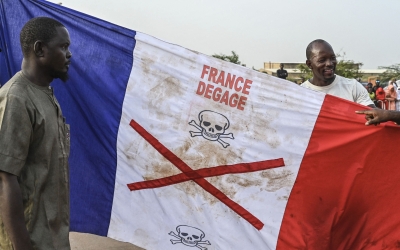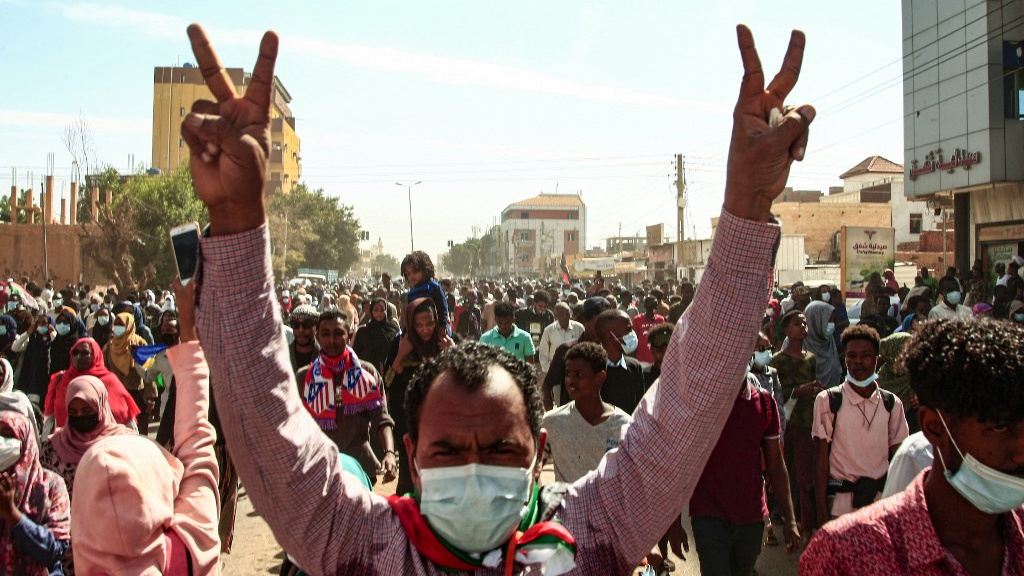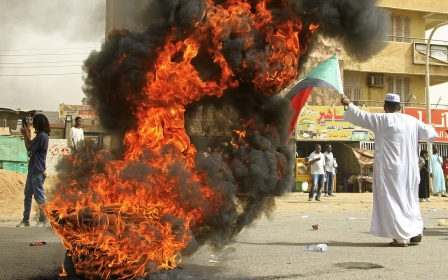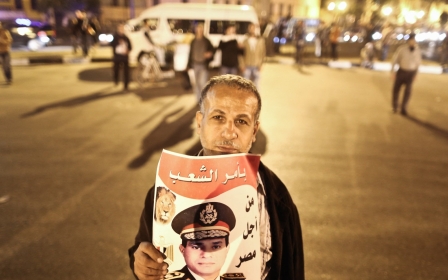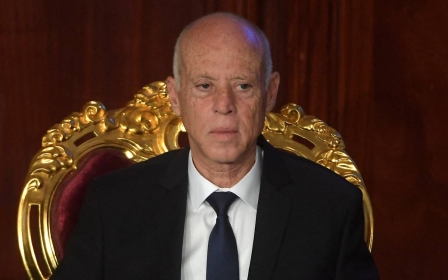Africa's coup epidemic: What's different this time around?
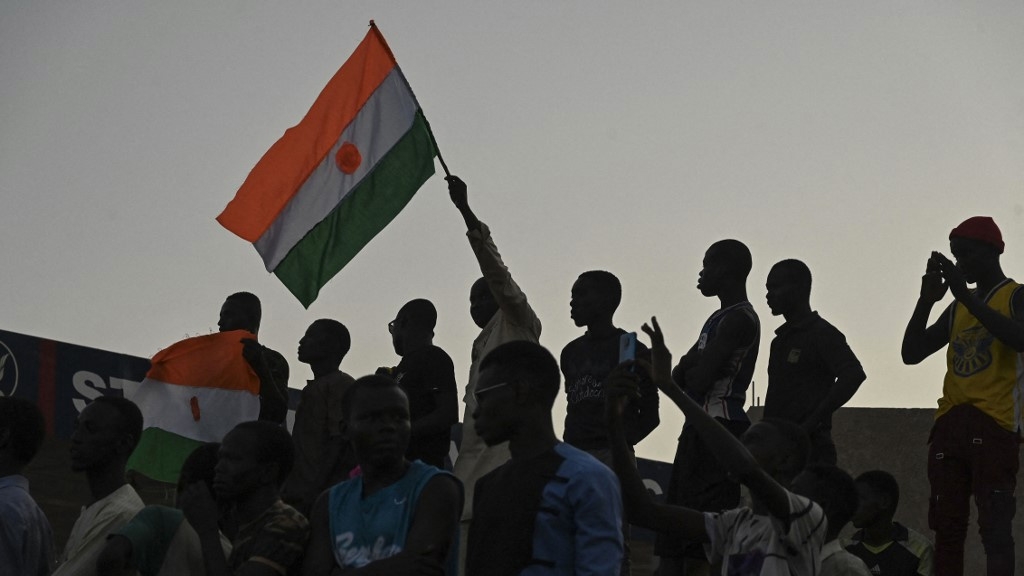
With eight successful coups in the past three years alone, many have expressed concerns over a recent “coup epidemic” in Africa. But the continent is no stranger to coups, having intermittently grappled with the rise and fall of military regimes since decolonisation. Roughly 44 percent of the 242 successful coups since 1950 have been in Africa.
The recent resurgence of coups undermines the “third wave of democratisation” that swept across much of Africa throughout the 1990s, following the end of the Cold War. It also comes at a time when the international community is concerned with “democratic backsliding”, manifested in the global erosion of democratic institutions, the rise of populism and an increase in anti-democratic attitudes.
Rather than being embraced as a set of principles with normative value, democracy is often marketed as merely a means to an end - one that has yet to deliver on the region’s pressing hopes for stability, economic development or even meaningful participation.
It comes as no surprise that six decades after independence, movements and populations are increasingly frustrated with democracy’s unfulfilled promises. From the streets of Mali to Gabon, citizens disenchanted by the current state of democratic politics have taken to the streets en masse to legitimise and celebrate military takeovers. But what have military regimes achieved in the past, and what possibilities do they hold today?
Scholars have struggled to devise any reliable theory that can predict the causes of coups, but a few broad trends can be extracted. Coups rarely occur in institutionalised democracies above a certain threshold of economic development. Once initiated, coups set a precedent for resolving power struggles between competing factions of the military and society at large.
Stay informed with MEE's newsletters
Sign up to get the latest alerts, insights and analysis, starting with Turkey Unpacked
This explains why the biggest indicator of whether a state is prone to coups is whether it has experienced one in the past. Many also note a regional spillover effect, which explains the African Union (AU)’s adamant anti-coup position, even where coup plotters have popular support. Combined, these factors leave much of the Global South vulnerable to military uprisings.
Corporate interests
While many factors contribute to a military’s decision to intervene politically, the most determinative is whether an existing regime threatens their corporate interests. The 2021 Guinea coup, for instance, occurred within weeks of then-President Alpha Conde's decision to slash the military budget, while Sudan’s military saw a 59 percent reduction ahead of its coup the same year. Military budgets almost inevitably increase following a coup.
A military’s corporate interests, however, go beyond monetary considerations. National armies command respect, and a regime that deploys the military against domestic opposition may threaten its legitimacy and internal cohesion. The uprisings in Tunisia and Egypt during the Arab Spring are prime examples.
Successive defeats in war that officers can link to intrusion in their affairs can also prompt coups. Coup-plotting officers in the Sahel have repeatedly cited their grievances over France’s imprudent counterterrorism military interventions in the region.
Militaries in Africa and the Middle East have expanded their power base through alliances with the working classes against aristocratic and feudal forces
Public opinion polls show that militaries consistently outrank other state institutions in terms of legitimacy, a trend that transcends regime types and geopolitical boundaries. This is partially because militaries tend to be more representative of a society’s demographics, and offer avenues for social mobility that other state institutions foreclose. Whether they will ultimately rule in favour of the working class, however, largely depends on the composition of the military.
The officer corps in most countries is predominantly drawn from middle-class elements of a society. They are thus inclined to preserve the interests of their class through alliances with other strata of society. Latin America, by virtue of its earlier and rapid exposure to modernity, is one region where the degree of politicisation and mobilisation among the lower classes has been high enough to challenge the military’s corporate and middle-class interests.
In some cases, this has led the military to act in alliance with the conservative class to overthrow pro-working-class elected coalitions. In Chile under dictator Augusto Pinochet, for instance, the military feared that a communist takeover would result in the substitution of the regular army with a people’s militia.
By contrast, militaries in Africa and the Middle East have expanded their power base through alliances with the working classes against aristocratic and feudal forces. Low degrees of working-class mobilisation and delayed exposure to modernity weakened the nature of the class struggle, allowing post-colonial military regimes to grant concessions to the working classes in the form of land reforms, subsidies and nationalisation of healthcare and education, without threatening their own position.
Such class alliances also explain the motives and support for subsequent military coups against Islamist elected coalitions in Algeria in the early 1990s and Egypt in 2013. An Islamist takeover threatened both the middle-class way of life and the military’s corporate interests.
Additional challenges
Yet, just because a military is more representative of a population, doesn’t mean it is better equipped to govern. A handful of charismatic military figures in the past - such as Egypt’s Gamal Abdel Nasser, Ghana’s Jerry Rawlings and Burkina Faso’s Thomas Sankara, to name a few - were able to carry out massive social transformations via “revolutions from above”.
These legacies remain deeply ingrained in the public imagination, reinforcing the allure of a military-dominated utopia. But decades of military rule have repeatedly shown that militaries rarely, if ever, perform better than their civilian counterparts in most areas of governance.
On the contrary, military rule comes with an additional set of challenges: the reliance on coups for transfers of power, more allocation to defence budgets, the weakening of civil society, and a greater reliance on force to rule.
Militaries also tend to overestimate what they can accomplish through political intervention, while underestimating the challenges of governance. As the intractability of the problems they seek to resolve becomes clear, the combination of factionalism within army ranks and the threat of mass revolts compels them to return to the barracks - but only when they can ensure that the succeeding regime will protect their corporate interests.
Celebrations of military takeovers in the Sahel can be explained by people’s frustrations with developmental and political impasses, as well as the proliferation of transnational armed groups threatening state security. But unique to these demonstrations, especially those in the Sahel, is a staunch anti-imperialist undertone.
The connection between imperial processes of extraction, and elite capture of the state through flawed electoral processes and systemic underdevelopment, is becoming increasingly clear to citizenries. France’s neocolonial influence has been singled out as the primary impetus governing these challenges.
Neocolonial powers
These challenges, however, are not new. In the 1960s, Ghanaian politician and political theorist Kwame Nkrumah used the term “neocolonialism” to describe the final, most dangerous stage of imperialism. Neocolonialism is a system of economic domination upheld by western, capitalist powers that strategically reduces former colonies to sites of extraction for raw resources and markets for their manufactured goods.
Three elements sustain this system: uneven trade conditions in the global economy that reinforce the peripheral status of former colonies; the use of military force to re-subjugate or overthrow governments that threaten this order; and political intervention, typically in the form of bribes to public servants who act as agents or stooges of imperial interests.
These problems, Nkrumah warned, are global in nature. They are beyond the capacity of any single national government to confront unilaterally. Only through regional and transnational alliances can power be reconfigured at the scale needed to generate meaningful change and break this deeply entrenched cycle of dependency. Economic and political unity “is the first requisite for destroying neo-colonialism”, Nkrumah noted.
One may add that an anti-imperialist consciousness and mass awareness of neocolonial exploitation are a prerequisite for unity. Africa’s population is demonstrating this awareness, but the question remains whether militaries are positioned to reclaim control over countries’ resources and future. There are structural and strategic reasons to believe they are, but not without a cost.
Politics is a game of alliances. Prospects for meaningful change ultimately boil down to how effectively militaries can forge new domestic, regional and international alliances, while severing the previous alliances and pacts that reinforced France’s neocolonial stronghold in the region.
This is not an easy feat, but it remains possible. Militaries typically adhere to a unifying set of ideological values that stress merit, modernisation, rationalisation, and political order and stability. This, along with their rigid chain-of-command hierarchy, allows them to bypass the political stalemates and clientelism associated with electoral politics to foster radical and rapid change.
Strategic alliances
Africa’s military elites also tend to move fluidly between common networks by virtue of their training in similar institutions. All these factors increase the likelihood of transnational cooperation among members of new military regimes, such as the proposed regional partnership between Burkina Faso, Mali and Guinea.
A joint military force could effectively clamp down on the movement and proliferation of armed groups weakening the Sahel’s collective security. These countries are also rich in resources, including diamonds, oil, uranium, gold and phosphates. New economic pacts could boost their bargaining power in the global economy, while putting an end to the privileges afforded to French companies in the extraction of these resources.
This wave of coups is far from over, with analysts predicting more to come
Strategic reasons also exist for military regimes to join forces. Regional and global powers are hostile to such regimes, viewing them as destabilising forces with negative implications for peace, security and democracy.
The Economic Community of West African States (Ecowas), for example, threatened to deploy troops in Niger to restore a democratically elected government. The decision was judiciously rejected by the AU, which is being forced to rethink its adamant anti-coup position.
In response, Mali and Burkina Faso have pledged to defend Niger against Ecowas intervention, deeming it a "declaration of war". In other words, "the enemy of my enemy is my friend".
This wave of coups is far from over, with analysts predicting more to come. Military leaders rarely have a long-term vision for governance, but through strategic alliances with civilian technocrats, they can effectively exploit the transition period to sever the economic and political arrangements undermining their countries’ autonomy, and lay out a new blueprint for transnational integration. Only then does democracy actually stand a chance of flourishing in Africa.
In essence, civil-military relations are most constructive when militaries focus on their role of protecting territorial sovereignty, but what is there to protect when national sovereignty is questionable to begin with?
Only when this fundamental issue is resolved can subordinate, democratic militaries become a reality in Africa.
The views expressed in this article belong to the author and do not necessarily reflect the editorial policy of Middle East Eye.
This article is available in French on Middle East Eye French edition.
Middle East Eye delivers independent and unrivalled coverage and analysis of the Middle East, North Africa and beyond. To learn more about republishing this content and the associated fees, please fill out this form. More about MEE can be found here.



